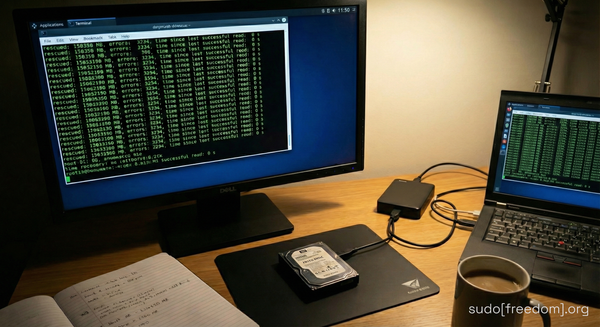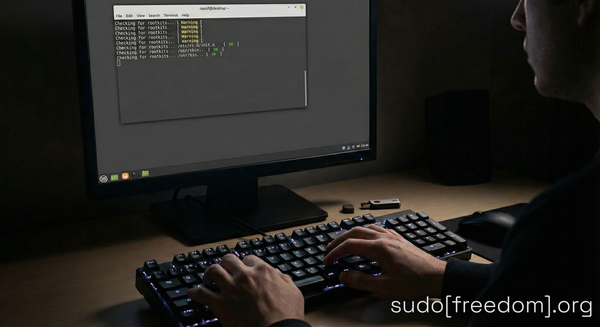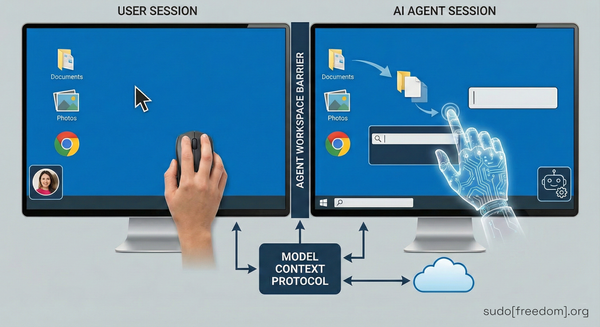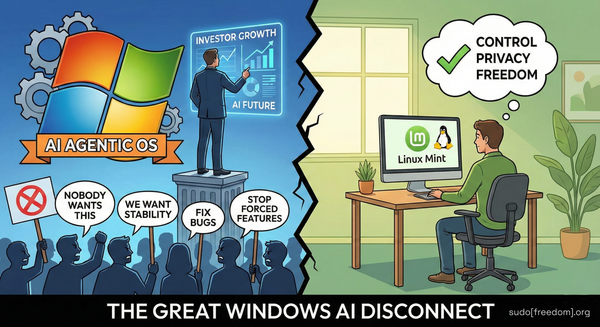Europe's Digital Surveillance Plan: Why Your Private Messages Are No Longer Private
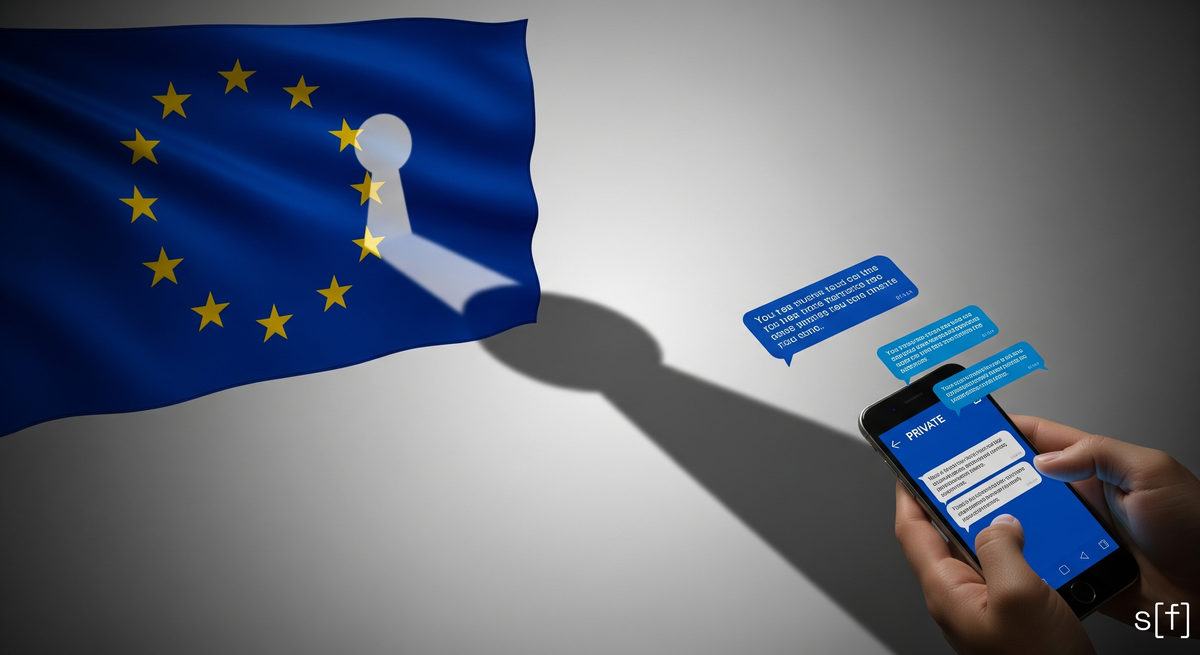
The EU has implemented mass scanning of all your messages, photos, and videos. Even encrypted ones.
The controversial "Chat Control" proposal that privacy advocates warned about throughout 2024 has now become reality. As of August 2025, the European Union has successfully implemented a system that requires messaging platforms including WhatsApp, Signal, and Telegram to scan all user messages, photos, and videos in real-time.
This isn't about metadata or connection logs. This is about scanning the actual content of your private conversations, even when they're end-to-end encrypted.
The Chat Control Implementation
The proposal, formally known as the "Chat Control" regulation, was successfully implemented after Germany joined the majority vote in late 2024. What privacy advocates warned would happen throughout 2024 will become operational reality when the system is launched in October 2025.
The system that will go live in October 2025 represents nearly a year of planning and infrastructure development. France's shift from opposition to support proved decisive, alongside backing from Belgium, Hungary, Sweden, Italy, and Spain.
What the system now does:
- Real-time scanning of all messages, images, and videos
- AI detection algorithms running continuously on messaging platforms
- Circumvention of end-to-end encryption through client-side scanning
- Automated reporting of flagged content to national authorities
- Integration with artificial intelligence systems for pattern recognition
The Technical Reality
The EU claims this system will only target "harmful content," but that definition remains deliberately vague. The technical implementation would require messaging apps to either:
- Scan messages before encryption (client-side scanning)
- Provide backdoors for law enforcement access
- Use AI detection systems that flag "suspicious" patterns
All of these approaches fundamentally break the security model that makes private communication possible. When you create a backdoor for law enforcement, you create a vulnerability that can be exploited by anyone with sufficient technical capability.
The Real-World Impact
Nine months into implementation, the effects are becoming clear. As discussed in recent interviews with European analysts, the system has evolved beyond simple content detection:
- AI systems now monitor conversation patterns, not just content
- Protest organization can be predicted before it happens through communication analysis
- Political dissent is flagged automatically based on keyword combinations and context
- Administrative censorship operates without judicial oversight
The conversation reveals a concerning reality: artificial intelligence systems are now analyzing every digital conversation in Europe, building behavioral profiles that extend far beyond the original "harmful content" justification.
The Broader Context in 2025
By August 2025, this surveillance expansion operates alongside other implemented control mechanisms:
- Spain's government department to "combat misinformation" now operates with expanded powers
- The EU's Digital Services Act successfully pressures US tech companies to apply European censorship standards globally
- AI systems handle automated content detection, flag users, and predict "problematic behavior"
Recent incidents highlight the system's scope. In Finland, during a speech where EU Commission President Ursula von der Leyen praised Finnish democracy and criticized Russian limitations on protest, Finnish police simultaneously dragged away a protester from the audience. The irony was not lost on observers.
What This Means in 2025
If you live in Europe or communicate with people who do, this system is already analyzing your communications:
- Your WhatsApp messages are scanned by AI systems trained to identify political patterns
- Your Signal conversations are no longer truly private, despite technical encryption
- Your photos and videos are analyzed not just for content but for metadata and context
- Your digital communications create permanent behavioral profiles stored indefinitely
The system operates automatically. There's no human reviewing your conversations initially - artificial intelligence systems flag patterns, predict behaviors, and build profiles without human oversight.
The Tools Still Exist But Time Is Critical
Despite these developments in 2025, the tools for private communication and digital independence still exist. Organizations like sudo[freedom].org have been working throughout this year to help people transition away from monitored platforms before it becomes impossible to do so safely.
Immediate steps you can take:
- Learn to use Tor Browser for anonymous web browsing
- Set up encrypted DNS over TLS or HTTPS to prevent DNS monitoring and manipulation
- Configure self-hosted communication systems that operate outside centralized platforms
- Host your own cloud storage using open-source solutions instead of Google Drive or iCloud
- Use VPN services based outside EU and Five Eyes jurisdiction
- Understand how mesh networking can work without traditional internet infrastructure
- Install Linux distributions that respect your privacy by default
The technical guides at sudo[freedom].org walk you through each of these steps without assuming you're already a system administrator. The goal isn't to make you a cybersecurity expert overnight. It's to give you practical tools to reclaim your digital freedom while you still can.
Breaking Free While You Still Can
The choice is stark: learn to use private communication tools and self-hosted infrastructure now, while it's still technically feasible, or accept that your digital life will be permanently monitored, analyzed, and controlled.
As European analysts noted in interviews this year, authorities aren't just building surveillance infrastructure. They're actively working to impoverish citizens, limit movement, and create digital dependency that makes escape increasingly difficult.
This isn't paranoid speculation. It's the documented reality of 2025.
The community at sudo[freedom].org exists precisely for this moment to help people transition away from Big Tech surveillance before the window closes completely. Every month you delay makes the transition more difficult and potentially more dangerous.
Your digital freedom depends on decisions you make today, not promises politicians make tomorrow.
Ready to start? Visit sudo[freedom].org for step-by-step guides on installing privacy-focused Linux distributions, setting up self-hosted cloud storage, and building communication systems that actually belong to you.
References:
- EU Council Chat Control Implementation Reports (2024-2025)
- Digital Services Act Enforcement Data (2025)
- European Parliament Committee on Civil Liberties Analysis (August 2025)
This article reflects the operational reality as of August 2025. The surveillance infrastructure described is currently active across EU member states.
![sudo[freedom].org](https://sudofreedom.org/content/images/2025/08/sudo.png)
![sudo[freedom]](/content/images/size/w160/2025/08/square.svg)
